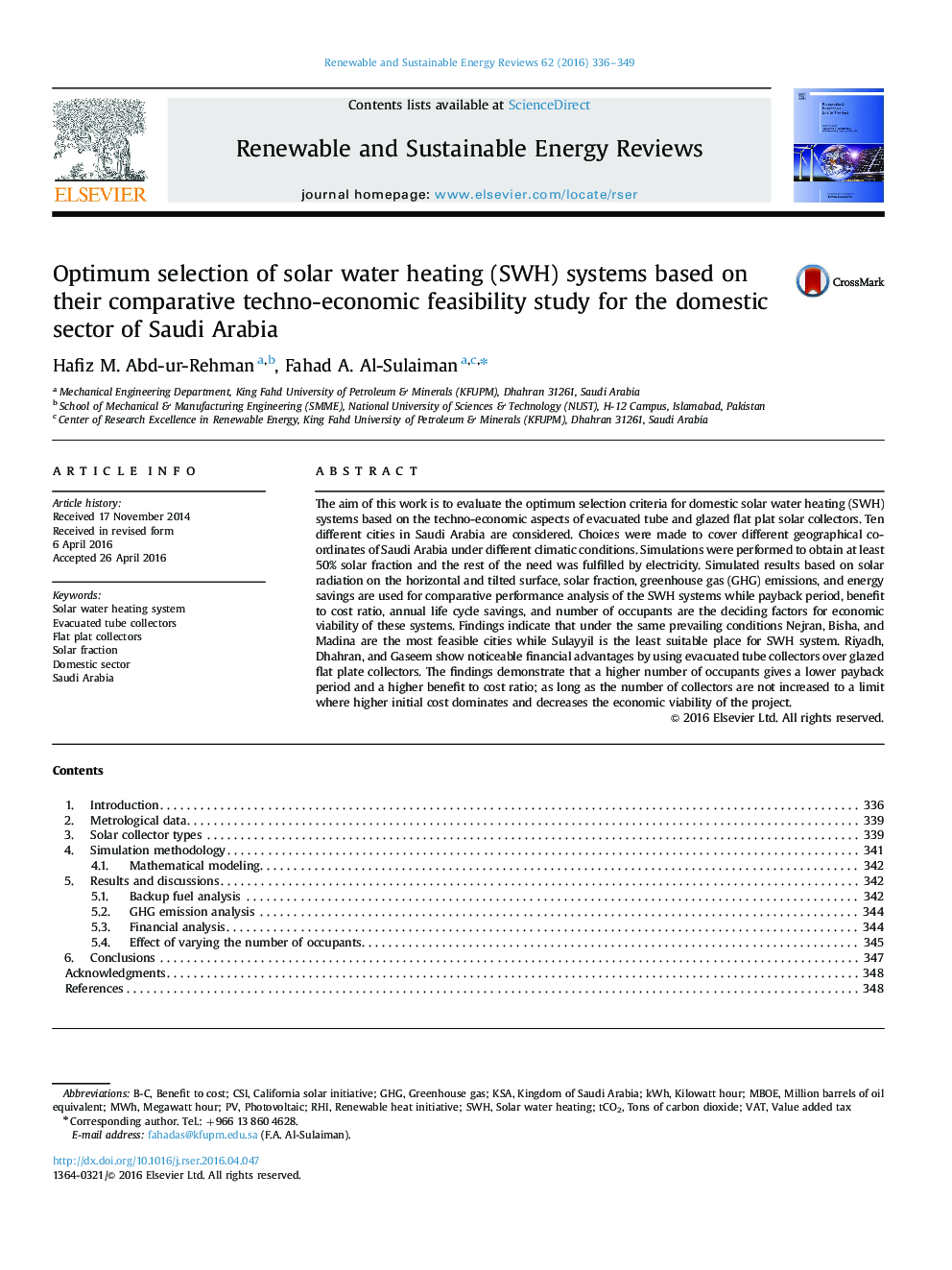| Article ID | Journal | Published Year | Pages | File Type |
|---|---|---|---|---|
| 8113444 | Renewable and Sustainable Energy Reviews | 2016 | 14 Pages |
Abstract
The aim of this work is to evaluate the optimum selection criteria for domestic solar water heating (SWH) systems based on the techno-economic aspects of evacuated tube and glazed flat plat solar collectors. Ten different cities in Saudi Arabia are considered. Choices were made to cover different geographical co-ordinates of Saudi Arabia under different climatic conditions. Simulations were performed to obtain at least 50% solar fraction and the rest of the need was fulfilled by electricity. Simulated results based on solar radiation on the horizontal and tilted surface, solar fraction, greenhouse gas (GHG) emissions, and energy savings are used for comparative performance analysis of the SWH systems while payback period, benefit to cost ratio, annual life cycle savings, and number of occupants are the deciding factors for economic viability of these systems. Findings indicate that under the same prevailing conditions Nejran, Bisha, and Madina are the most feasible cities while Sulayyil is the least suitable place for SWH system. Riyadh, Dhahran, and Gaseem show noticeable financial advantages by using evacuated tube collectors over glazed flat plate collectors. The findings demonstrate that a higher number of occupants gives a lower payback period and a higher benefit to cost ratio; as long as the number of collectors are not increased to a limit where higher initial cost dominates and decreases the economic viability of the project.
Keywords
Related Topics
Physical Sciences and Engineering
Energy
Renewable Energy, Sustainability and the Environment
Authors
Hafiz M. Abd-ur-Rehman, Fahad A. Al-Sulaiman,
